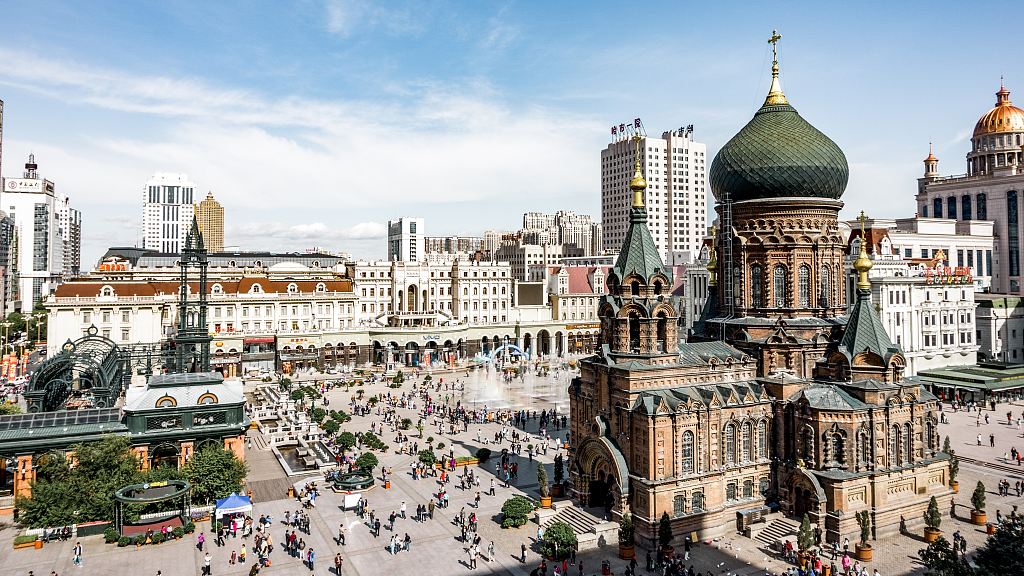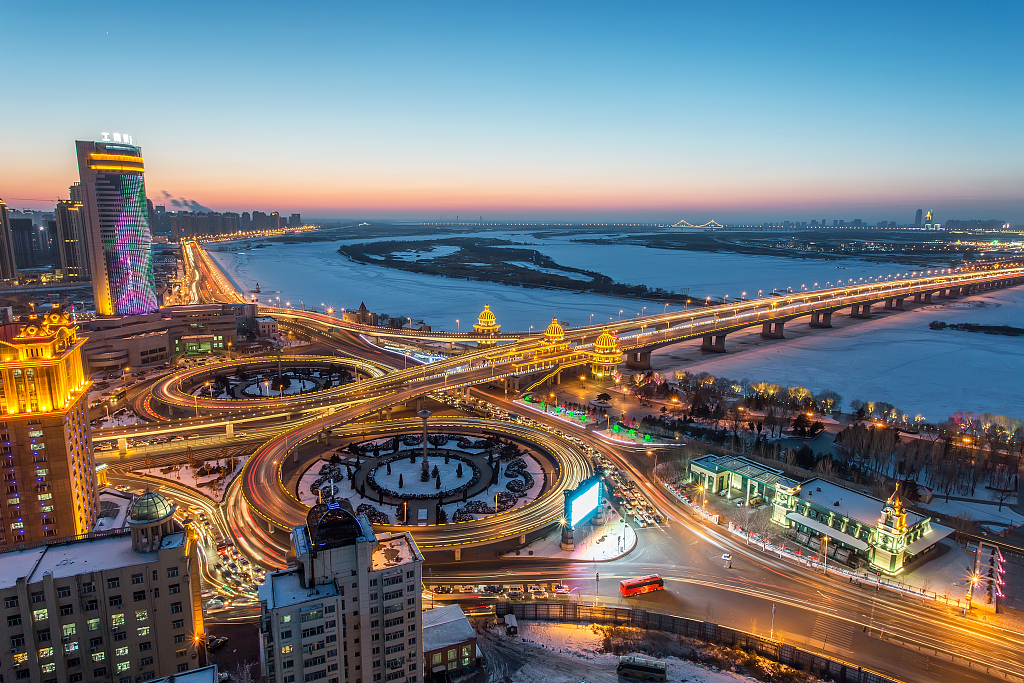

China's northeastern city of Harbin lies near the border with Russia. The huge Russian influence has once gained this city the nickname Oriental Moscow. Over the years, it has been making full use of its geographical advantage and played a major role in the advancement of China-Russia relations. Now, as those ties reach new levels, Harbin is rolling out new strategies to forge ahead connectivity and business with Russia, aiming to develop itself into a central city for China-Russia cooperation.
The China-Russia Expo, held biannually in Harbin, has become an icon of Harbin’s significant status in exchanges with Russia. This year, the fair has attracted a record-high number of Russian exhibitors and witnessed the signing of over 300 agreements worth some 25 billion U.S. dollars. This is just a preview of deeper economic and trade ties under the advancing strategic partnership, as Russian Vice Premier Maxim Akimov said.
The two countries have two imperative tasks – to improve business environment and logistics transportation. "This will take our bilateral trade volume to new heights and make more profits for the region," said the vice premier.

Harbin City, Heilongjiang Province, northeast China. /VCG Photo
Harbin appears fully ready to take the lead and bring along more players in the region towards new economic growth. The northeastern trading center runs a comprehensive bonded zone and supplementary logistics center to provide better customs clearance, bonded processing, logistics and trade services. Earlier this year, Harbin was also designated a cross-border e-commerce pilot area to serve the fast-growing cross-border e-businesses with Russia. Soon, it will take another leap forward as China has recently unveiled plans to build up a new Pilot Free Trade Zone in Heilongjiang Province, with part of that in Harbin.
Cheng Zhiming, vice governor of Heilongjiang, said the strategic positioning of the Heilongjiang Pilot Free Trade Zone is to revitalize northeastern China, further industrial structural reform, serve as an important gateway for China to open to the north, and build a hub for cooperation with Russia and northeast Asia.
Harbin also shines in some of the rising key areas of cooperation between the two countries, namely, technology. Based on a sound scientific research and engineering background, many institutes here have carried out joint projects with their Russian counterparts, especially in telecommunication, agriculture, and aerospace. Harbin Engineering University has long had a talent exchange history with Russian academies.
They recently established a China-Russia joint laboratory on polar technology and equipment to provide support for the Belt and Road Initiative and building of the "Silk Road on Ice."

Harbin along the banks of the Heilong River. /VCG Photo
Xue Yanzhuo, dean of the university's shipbuilding engineering college, said they sought to combine their respective advantages in technology and shipbuilding techniques. "We hope research outcomes from joint projects will be used in our country's polar route operations in the future," Xue highlighted.
Besides, as an important part of the Belt and Road Initiative, Harbin will continue to build a more comprehensive transportation network and easier import and export passageways.
It's not only the provincial capital but the entire region is now at the forefront of boosting connectivity. Two cross-border bridges are expected to go into operation this year, and construction of a cross-border natural gas pipeline is in full swing. With these mega projects in place, the border area hopes to see a new boom in trade, and people-to-people exchanges.

Copyright © 2018 CGTN. Beijing ICP prepared NO.16065310-3
Copyright © 2018 CGTN. Beijing ICP prepared NO.16065310-3